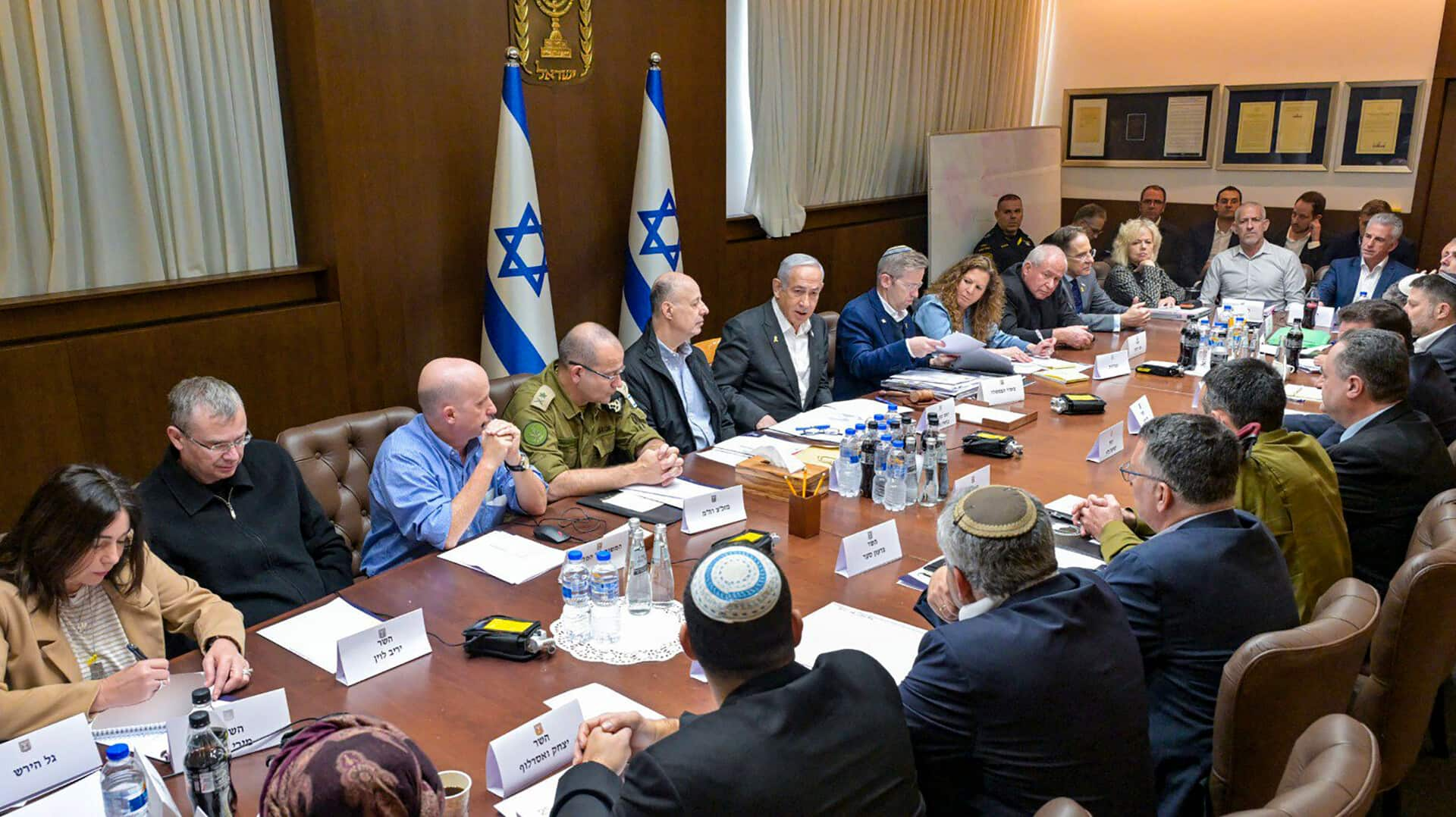
Israel's Cabinet approves Gaza ceasefire deal, hostage release
What's the story
Israel's Cabinet has approved a six-week ceasefire agreement with Hamas, bringing a pause to the 15-month conflict early on Saturday. The deal was announced by mediators Qatar and the United States but was delayed due to "last-minute complications," Israeli Prime Minister Benjamin Netanyahu said, blaming them on Hamas. The agreement involves the release of 33 hostages by Hamas within 42 days and Israel freeing hundreds of Palestinian detainees in return.
Prisoner exchange
Hostage and detainee release details unveiled
The first phase of the deal entails Hamas releasing 33 hostages over 42 days. In return, Israel will release hundreds of Palestinian detainees, starting with 95 young or female prisoners. The Israeli Prison Services will be responsible for transportation to prevent public celebrations. French-Israeli nationals are among the first hostages to be released, French President Emmanuel Macron confirmed.
Aid influx
Humanitarian aid and troop withdrawal in Gaza
The ceasefire agreement also opens the door for an increase in humanitarian aid to Gaza. Trucks carrying aid are already lined up at the Rafah border crossing from Egypt, waiting to enter Gaza. Meanwhile, Israeli forces will also pull back from many areas in Gaza in this phase, allowing hundreds of thousands of Palestinians to return home. However, residents can't return to areas where Israeli troops remain or near the Israel-Gaza border.
Conflict overview
Conflict background and future ceasefire phases
The conflict started with a Hamas attack on October 7, 2023, which left over 1,200 Israelis dead and around 250 taken captive. Israel's response has killed over 46,000 Palestinians, local health officials said. The first phase of the ceasefire involves a gradual withdrawal of Israeli Defense Forces (IDF) from densely populated areas in Gaza and a massive increase in humanitarian aid delivery. Talks for the second phase will commence on day 16 of the first phase.
Political unrest
Political tensions and future peace efforts
The ceasefire deal is similar to the May 2024 'Biden Plan,' which Israel had initially rejected. The soon-to-be-returned Donald Trump as US President played a role in Netanyahu's decision to accept the deal despite opposition from his right-wing coalition partners. Qatar's Prime Minister Sheikh Mohammed bin Abdul Rahman Al Thani stressed his commitment to implementing the agreement. A joint mechanism of Qatar, Egypt, and the US will monitor progress.